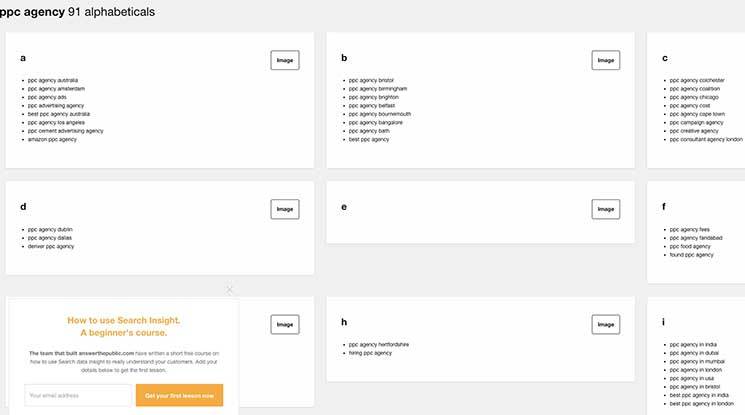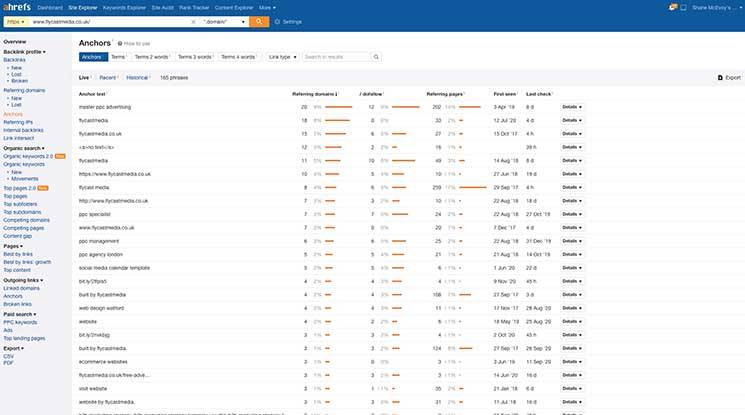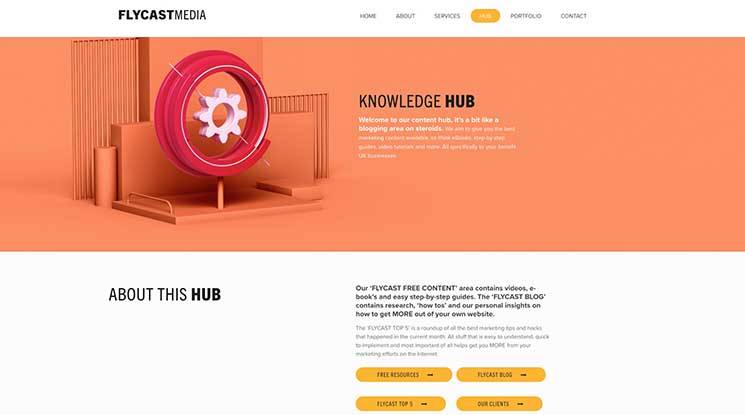WHY WE LOVE GOOD CONTENT WITH THE RIGHT FINANCIAL KEYWORDS (AND YOU SHOULD, TOO!)
TL;DR: 📈
- Smart keyword targeting: attracts high-value investors and decision-makers by aligning with their exact search intent.
- Use long-tail, intent-based, and localised keywords to boost visibility and generate more qualified leads for your firm.
- Back your strategy with tools like SEMrush, Google Search Console, and competitor keyword analysis for measurable results.
- Reach serious investors with keyword strategies built around your firm’s goals, no fluff, just precise targeting that drives measurable growth.
Targeted Keywords Matter In Financial Services
Keywords were largely ignored in the earliest iterations of most websites including those in the financial services industry, with dense and poorly structured content making it challenging for investors and financial professionals to quickly locate relevant information.
Today, keywords play a crucial role in any well thought out content plan and below we've mentioned several ways hedge funds, discretionary investment firms, fintech companies, and investment houses can use keyword targeting to their advantage.
Generally speaking, when you Identify and target precise keywords aligned with the specific intent of key financial decision-makers, you can significantly enhance both discoverability and audience engagement.

Using Analytical Tools to Identify High-Impact Keywords with Proper Intent
Identifying the right financial keywords involves more than intuition. Tools such as Google's Keyword Planner, Ahrefs, and SEMrush can provide essential data on search volume, keyword difficulty, intent, and competitive benchmarking,
When analysing this data, consider looking beyond basic metrics to identify financial terms with transactional intent, informational queries that indicate research phases, and navigational terms used by prospects already familiar with your services.
Pay particular attention to seasonal keyword trends, which can be critical for investment services related to tax planning, ISA seasons, or year-end portfolio adjustments.
Competitor Keyword Analysis for Strategic Positioning
One powerful approach involves analysing your top competitors' keyword strategies. Examining which terms drive traffic to competing financial services firms can help you identify valuable opportunities and critical gaps in your own strategy.
You can also analyse competitors' top-performing keywords to reveal which financial terms generate the most engagement.
This competitive intelligence can enable more strategic keyword targeting and help you to challenge competitors on high-value terms you may well otherwise have overlooked.
Understanding and Leveraging Searcher Intent
The effectiveness of SEO keywords hinges on correctly identifying and leveraging searcher intent.
Financial professionals and investors typically have very specific queries related to financial strategies, investment risk, regulatory frameworks, or product solutions.
Keywords must therefore be carefully chosen to match search terms with their underlying intent—such as "long-term wealth management," "ESG investment opportunities," or "private equity performance analysis."
Aligning content to these specific intentions allows firms to attract precisely the visitors they seek.
Intent-Based Keyword Mapping for Client Journey Alignment
Financial services firms should map keywords to different stages of the client acquisition journey:
- Awareness Stage Keywords:
Terms like "how to start investing" or "understanding risk tolerance" target prospects early in their decision-making process. - Consideration Stage Keywords:
More specific terms such as "compare wealth management fees" or "best financial advisors for business owners" focus on prospects evaluating options. - Decision Stage Keywords:
High-intent keywords like "book financial advisor consultation" or "wealth management firm near me" target prospects ready to engage services.
Creating this intent-based keyword map helps to addresses the full spectrum of client needs, capturing potential clients at every stage of their decision-making process.

Strategic Placement of Keywords in Content
Financial keywords should be strategically placed to maximise SEO impact.
They should naturally integrate within:
- Main Content:
Financial keywords should appear organically, and add meaning within your articles, insights, and reports. - Headings and Subheadings:
Incorporate primary and secondary keywords clearly within headings to signal content relevance. - Anchor Text:
Anchor text associated with internal links, especially when referencing financial charts, reports, or investment data, should contain relevant keywords to clearly describe linked content. - Image Alt Text:
Optimise image alt text with financial-specific terms to improve search visibility and accessibility through image search—examples include "investment performance chart" or "portfolio risk distribution."
Enhancing Meta Descriptions for Financial Audiences
Meta descriptions are critical for capturing the attention of discerning financial audiences within the search engine results.
They should succinctly summarise the page's content while incorporating carefully chosen financial keywords like "portfolio diversification strategies," "risk mitigation techniques," or "algorithm-driven trading."
Effective meta descriptions significantly boost click-through rates and help attract qualified, high-value traffic.
Localised Keyword Strategies for Financial Services
Implementing localised keywords can significantly increase visibility for financial services firms targeting specific geographic markets.
High-net-worth individuals often search for financial services within their region, making location-based keywords essential. Consider incorporating terms like "wealth management in [city name]" or "investment advisory London" to capture location-specific searches.
Financial firms with multiple locations should develop dedicated pages for each office, optimising each with relevant local keywords to improve both search visibility and regional credibility.
Long-Tail Keywords: The Secret Weapon for Niche Financial Services
While high-volume financial keywords are often highly competitive, long-tail keywords present valuable opportunities for specialised financial services.
These longer, more specific phrases typically have lower search volumes but significantly higher conversion rates.
For example, rather than competing for "investment management," a firm specialising in sustainable investments might target "fossil-free retirement portfolio management" or "impact investing for family offices."
These targeted phrases attract precisely qualified prospects actively seeking specialised expertise.

Semantic Keyword Expansion for Comprehensive Coverage
Modern search engines use semantic analysis to understand content context beyond exact-match keywords. For financial services content, incorporating semantically related terms significantly improves content relevance and authority.
When creating content around a primary keyword like "estate planning," include related terms such as "wealth transfer," "inheritance tax mitigation," and "succession planning."
This approach helps satisfy the depth requirements that search engines use to evaluate topic authority, particularly important in financial services where Google applies stricter quality standards.
Quality and Authenticity Over Keyword Density
For financial services websites, maintaining content authenticity is crucial.
Keyword stuffing diminishes credibility, particularly with sophisticated investors or high-net-worth clients. Content should be authoritative, well-researched, and insightful, integrating keywords naturally to establish trust and demonstrate expertise.
The Role of Continuous Keyword Optimisation
Keyword strategies in the financial sector must remain dynamic. Regularly analysing performance data through tools like Google Analytics or Search Console helps to refine keyword choices continually.
This adaptability ensures that content stays relevant, responsive to changing financial trends, regulatory developments, and evolving audience needs.
Emerging Trend Monitoring for First-Mover Advantage
Financial services evolve rapidly, with new investment approaches and technologies constantly emerging.
Tools like Google Trends, BuzzSumo, and social listening platforms can identify rising financial topics and keywords before they become highly competitive.
Creating authoritative content around emerging terms early can establish leadership positions in new niches before competition intensifies, securing valuable search rankings that become increasingly difficult to achieve as topics gain mainstream attention.
In conclusion, effective keyword targeting and implementation in financial SEO goes beyond search engine visibility.
It's about strategically positioning your content to meet the exact informational needs of investors, financial decision-makers, and high-net-worth individuals actively searching for trusted expertise and valuable financial insights.
Shane McEvoy is a financial marketing expert with over 30 years' experience in digital advertising and financial services. He founded Flycast Media, a leading financial marketing agency, and has authored several influential guides and regularly contributes to respected industry publications - read his profile.